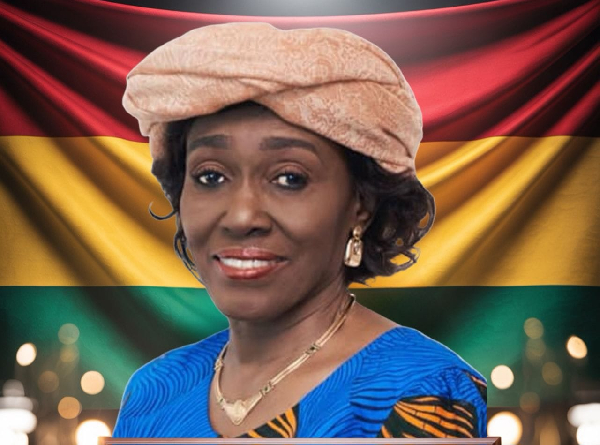When Ghana passed the Intestate Succession Law, 1985 (PNDCL 111), it marked a quiet revolution in the country’s legal and social history.
The law, which redefined inheritance rights for millions of Ghanaians, is today affectionately known as the “Nana Konadu Law”, a tribute to the woman whose courage and advocacy reshaped the destiny of widows and children across the nation.
At a time when custom silenced women and stripped them of dignity after the death of a husband, Nana Konadu Agyeman-Rawlings, then First Lady of Ghana, emerged as the voice of justice and fairness.
Her leadership and determination through the 31st December Women’s Movement transformed what was once a taboo conversation into a national agenda that challenged centuries of cultural injustice.
A law born out of compassion and courage
Before 1985, the realities for Ghanaian widows were often grim. Under customary law, property ownership was largely controlled by the extended family. When a man died intestate, without a will, his self-acquired assets, from land to household property, automatically reverted to his lineage.
In many cases, the widow and children were rendered homeless overnight, forced to rely on the mercy of relatives who saw themselves as rightful heirs. It was a system that perpetuated gender inequality, shattered families, and left children vulnerable to poverty. It was against this backdrop that Nana Konadu championed reform.
Her conviction was simple yet radical for its time: a wife who has built a home and a life alongside her husband deserves the same recognition and protection as his extended family, if not more.
Her tireless advocacy inspired the PNDC government under Flt. Lt. Jerry John Rawlings enacted PNDCL 111, a law that forever changed the balance of power in family inheritance.
The provisions that changed lives
The Intestate Succession Law, PNDCL 111, provided a clear and equitable framework for the distribution of property when a person dies without a will. It recognizes the nuclear family, spouse, and children as the core beneficiaries of a deceased person’s estate. Key provisions include: Fair Distribution: The estate is divided among the spouse, children, parents, and extended family in defined proportions, ensuring that widows and children are no longer sidelined.
Automatic Transfer of Household Chattels: All household items, vehicles, and personal effects go directly to the surviving spouse and children.
Protection of the Matrimonial Home: The law guarantees the right of the spouse and children to remain in the family home after the breadwinner’s death. Equality in Inheritance: Both male and female children inherit equally, erasing gender-based discrimination in family property distribution.
This law did not just regulate inheritance; it humanized it. It introduced fairness into a domain long dominated by cultural rigidity and male privilege.
A feminist legacy in law
For many Ghanaian women, PNDCL 111 was more than legislation; it was liberation. It symbolized a government’s recognition that women’s contributions to the home and the economy were not invisible.
Nana Konadu’s fingerprints are deeply embedded in this transformation. Through her 31st December Women’s Movement, she mobilized thousands of women across Ghana, educating them about their rights and pressing policymakers to act.
Her vision transcended charity; it was about structural empowerment, about creating a legal foundation for gender equality. At a time when the term “women’s rights” was still controversial in Africa, Nana Konadu embodied it with grace and conviction.
Enduring impact and unfinished work
Nearly four decades later, PNDCL 111 remains one of Ghana’s most socially transformative laws. It continues to protect millions of families from the injustices of disinheritance and property grabbing. However, the law’s legacy also faces challenges.
In many rural communities, customary practices still overshadow statutory law, and widows are often unaware of their rights. Legal education and enforcement remain critical gaps. Even so, the spirit of Nana Konadu’s advocacy endures.
Every widow who retains her home, every child whose education continues after the loss of a parent, and every family that survives with dignity is a testament to the vision she championed.
A woman who rewrote the rules of justice
In the story of Ghana’s progress, Nana Konadu Agyeman-Rawlings stands out as more than a former First Lady; she is a pioneer of women’s rights and social justice. PNDCL 111, the law forever associated with her name, remains a symbol of her empathy, intellect, and unyielding belief in fairness.
She once said that a just society protects the vulnerable even when no one is watching. The Intestate Succession Law, 1985, gave legal meaning to those words and continues to protect lives long after its architect left office.
In honouring Nana Konadu, Ghana honours every woman who dared to demand justice in the face of tradition. And in every home where a widow and her children live without fear of eviction, her legacy lives on quietly, powerfully, and permanently.
